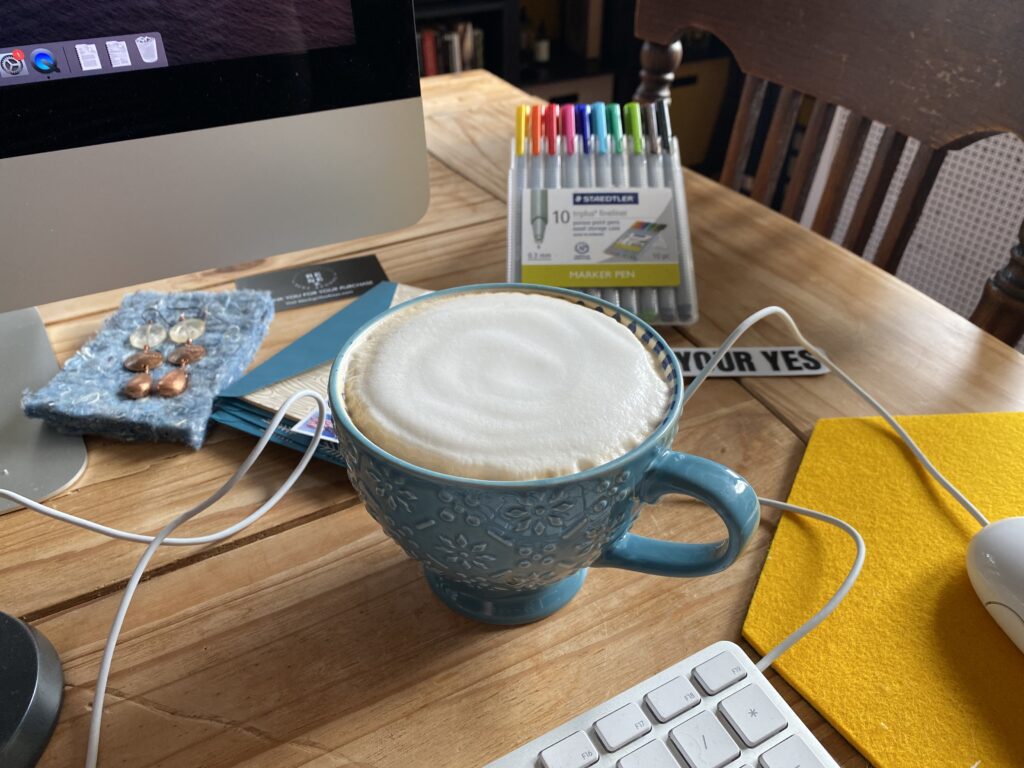Business As Usual
I’ve been musing over the last few days about the way we’re (at least I’m!) trying to conduct business as usual.
On Friday, I hit a wall. I woke to the news that the President had Covid-19, and there was no time to process or assimilate this information—to work out what it meant—before I needed to teach my first synchronous class session of the day. This news chased on the heels of a hundred other pieces of news: Amy Coney Barrett’s nomination to the Supreme Court (whose nomination event now seems to be the super spreader event at which Trump and others were infected); Trump’s taxes; the debacle of the first presidential debate; the Melania tapes. All of this was piled on top of months of other events which we’ve all been trying to process while lacking so many of our usual forms of community and understanding. There’s plenty going on with me personally—health problems that are making things that much harder—and then this week on campus an explosion of hate speech against BIPOC and LGBTQIA students. There were counter protests, more hate speech, more protests, and since I’m fully remote this term, I learned the details on Thursday evening and Friday morning from my students themselves (not from the administration).
It was so much. My emotional, physical, and mental response was to freeze, looking at a computer screen that was filled with all this information.

I am not special. We’re all trying to carry this load, and for some of us it weighs even more than it did for me on Friday. But on Friday I could not think my way through the things in front of me. Trying to think was like trying to physically slog through a pit of molasses. I didn’t know what to do, so I asked for help on twitter.
People had very good advice, advice that I have practiced many times before. Hold space for the students to talk about campus events if they’d like to; ask everyone to breathe; admit to my own vulnerabilities; change up the planned lesson to make room for the unexpected; follow the students’ lead.
But it wasn’t until Caroline Gottschalk Druschke said it was okay to cancel class that I felt like someone saw me. I realized that all the advice that people gave about taking care of students was actually advice I needed for me. I needed time to process, to be away from school responsibilities, to talk about what was going on, to breathe. And it had me reflect upon the fact that our gut response to overwhelm is often to keep going, no matter what. It is testimony to the incredibly caring, resourceful, principled community of people I talk to on twitter that so many people responded with ways to take care of students and put them first. That’s usually how I proceed. But on Friday, I needed to stop completely. I needed to put my own oxygen mask on before helping others.
I didn’t cancel class. In the moment I felt so swayed by the volume of people saying “keep going, you can do this” that I squashed my instinct to cancel, and opened up Zoom as usual. (This is absolutely no one’s fault but my own.) We did talk about what was going on on campus, and other things weighing on my students, and I managed about 45-minutes of teaching on topic before I was completely tapped out and had to let them go. I felt grim.
As the day unfolded further, I kept coming back to this realization: I have seen so many of us talk about making space for our students in this moment—this six-months-and-counting moment—but I so rarely see us talk about making space for ourselves. I have had so many conversations lately about the cognitive load our students are carrying before they even turn to their coursework, but so few about how our own brains and bodies are functioning (or not). We are struggling too.
It would have been the greatest kindness I could have given myself yesterday to cancel my class and take care of myself. I could have reached out to my students in other ways, prompted their learning without being in Zoom, checked-in on their well-being when I was less rocky.
I guess I’m saying when the shit truly hits, take the day. And I know that any one of us could justifiably protest that the shit is hitting every day and if we put ourselves first we’d never get anything done.
But we know the difference between what’s become an everyday struggle and the moment when we truly hit our capacity to cope, when our noses are pressed right up against the wall, when everything we do is a case of diminishing returns. When my students write to me to tell me they’re in that place I always tell them to take the time they need to rest, to eat, to drink water, to take care of themselves, and to forget about school work for a while. Why is it so hard for to do the same for myself?
This isn’t just an individualized problem. The situation points to the unsustainable things being asked of us by our institutions, to the systemic soup in which we’re swimming that wants a great many things from us, none of which include our health and well-being. It points to the fact that the structures in which we work are fundamentally damaging and need radical change. It points to the fact that business as usual is a ridiculous concept in the middle of everything going on right now.
But while we can’t change the stressors overnight, we can care for ourselves as we respond to that stress. I have been doing too much keeping on, and not enough stopping.